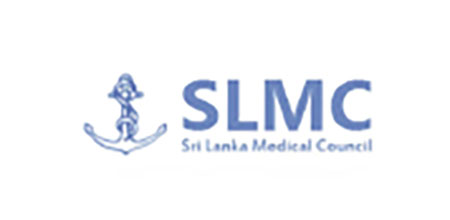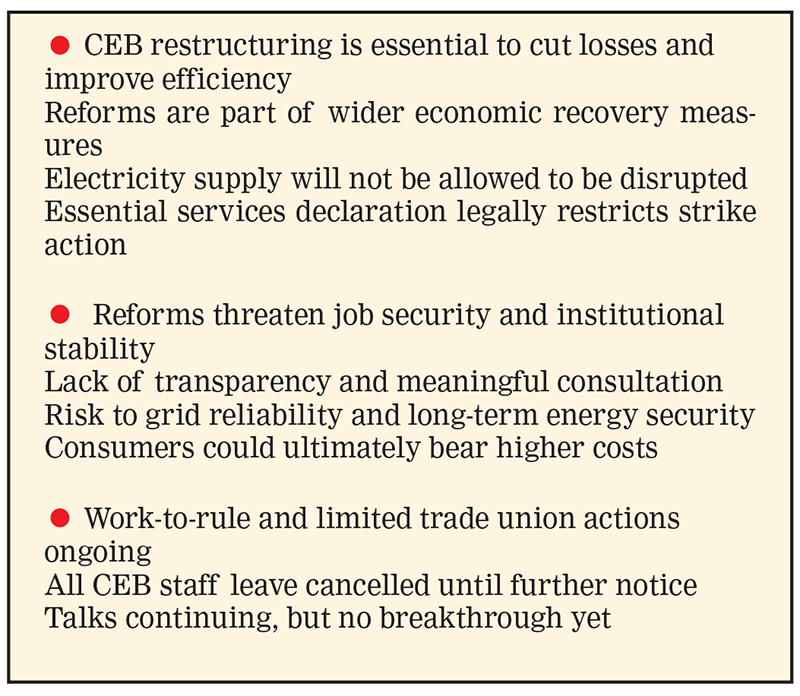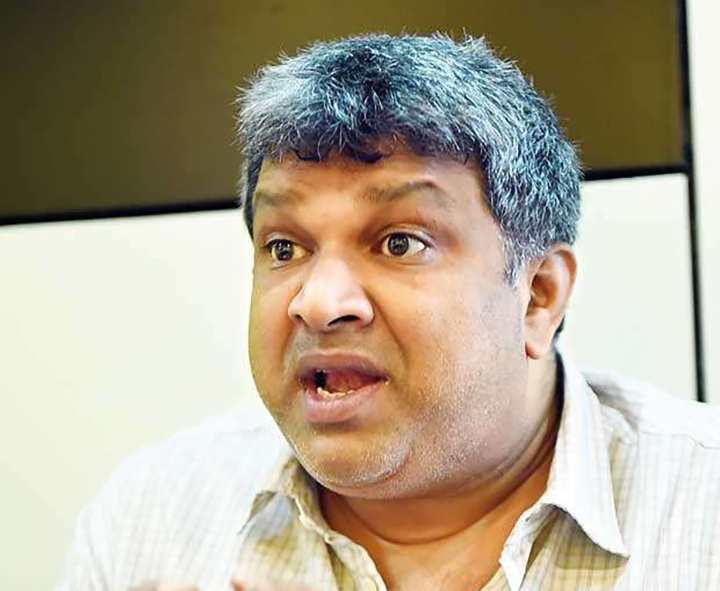News
Reopening now will paralyse the healthcare system – SLMC

Sri Lanka Medical Council (SLMC) yesterday said that it was too early to see a visible impact of the lockdown on the healthcare system and opening the country at this juncture would invariably facilitate the spread of the infection leading to increasing number of cases that in turn would cause a complete paralysis of the healthcare system.
In a letetr to President Gotabaya Rajapaksa, the SLMC has added that it is of the opinion that the vaccination strategy as implemented at present is flawed and needs a composite review urgently. In a setting particularly troubled by a continuous short supply of vaccines, SLMA emphasized the need for an efficient vaccination strategy, which targeting high-risk groups to achieve maximum control which would avoid the necessity for repeated lockdowns.
Given below is SLMC’s letter to the President:
“The SLMA is ever grateful to Your Excellency and the Government of Sri Lanka for declaring a “lockdown” (restriction of movement throughout the country) at the most crucial hour, which essentially salvaged Sri Lanka from getting into the abyss of a major catastrophe; a breakdown of the healthcare system of the country which in turn would have led to a breakdown of all systems.
“I, along with the SLMA Committee to advice on matters related to COVID 19, wish to bring to your kind attention the following important facts with regard to controlling of COVID-19 epidemic in Sri Lanka. In addition to the SLMA Council members and the members of the Intercollegiate Committee, Professor Neelika Malavige, Professor Malik Peiris and Professor Kamini Mendis, Contributed to the discussion.
“I. Recommendation with regard to the continuation of the lockdown
“We gathered information from consultants working in clinical settings and laboratories to find out the current usage of the capacity of the health care system
“a. Physicians indicated that the brunt of the outbreak is now concentrated in the main hospitals and all wards are well over their full capacity with symptomatic patients. There are many COVID patients as floor-patients in medical wards.
“b. Information from the ICUs indicated that other than the dedicated 82 ICU beds, another lot of about 70 more patients are treated in ordinary ICUs at the time of discussion. This situation compromises the care given for patients with Non-COVID issues. There are about 500 more patients on oxygen therapy, treated in High Dependency Units.
“c. Consultants from laboratories indicated the same or higher rates of PCR positivity despite overall PCR positive numbers remain same, when compared to previous weeks.
“This information confirms that hospitals are overwhelmed with cases. As expected, it is too early to see a visible impact of the lockdown on the healthcare system. Opening the country at this juncture would invariably facilitate the spread of the infection leading to increasing number of cases that in turn would cause a complete paralysis of the healthcare system. As such. while we are convinced of the benefits of the lockdown to the healthcare system. we are compelled to recommend a further extension of the lockdown by at least another week. Keeping grocery shops opened may facilitate compliance by the public with a longer lockdown.
“2. The need to review the vaccination programme
“We are appreciative of the decision taken by the Government of Sri Lanka to vaccinate healthcare officials and other frontline workers Such as the police. the tri-forces etc. initially with the highest priority.
However, we are of the opinion that the vaccination strategy as implemented at present is flawed and needs a composite review urgently. In a setting particularly troubled by a continuous short supply of vaccines, we emphasize the need for an efficient vaccination strategy, which targeting high-risk groups to achieve maximum control which would avoid the necessity for repeated lockdowns.
“In cognizance with the data available from the rest of the world, the death analysis of patients front the MoH, Sri Lanka, indicates that 73% of deaths occur in people over 60 years of age and 83% of deaths were in people with co-morbidities. Research findings have clearly demonstrated that vaccination reduces deaths and complications in patients infected with COVID-19. Research evidence does riot support benefits of vaccination to reduce transmission of infection unless a large majority of the population is vaccinated. As such, there is clear and compelling evidence to support prioritisation of vaccination of older adults more than 60 years, followed by people with comorbidities in the age group of 30 – 60 years. However, there is no appreciable benefit in vaccinating people with the highest mobility in so-called hotspots, as is currently carried out in the Sri Lankan setting.
“Furthermore, we emphasize the need of a definitive roadmap providing priority of vaccination in certain geographical locations. Presence of a roadmap would help in gaining the confidence of our people on the vaccination programme. Selection of Grama Niladhari divisions of high-risk locations for vaccination cannot be recommended as the infection would have already spread and the majority would have developed immunity by the time the vaccination programme is carried out. The opinion of experts with regard to selecting the geographical location is to select high-risk provinces or districts and to vaccinate high risk people in crowded areas such as main cities in those selected provinces or districts. An equal amount of vaccines could also be given to hospitals to immunize high-risk people with comorbidities. Along with vaccinating high-risk persons. people working in higher numbers in enclosed areas with longer essential congregate shifts in economic hubs and other essential congregate settings also could be prioritized.
“We urge the Government of Sri Lanka to provide a solution to the 600,000 people awaiting the second dose of the Covishield vaccine as early as possible. We see that offering them the first dose of Sputnik V following a quick clinical trial of the efficacy of such a manoeuvre as a reasonable option to solve the issue. Monitoring antibody levels 2 weeks following vaccination with Sputnik V in about 100 people who have had the 1st dose of Covishield vaccine may provide a reasonable answer to this question. The importance of documenting the adverse effects during such a clinical trial also needs to be emphasized.
“Further, we wish to highlight the need in future to reserve the second dose in instances where a second dose is in the schedule.
“3. Reporting meaningful data
“We understand that the primary role of the Epidemiology Unit of the Ministry of Health is surveillance and reporting the data in a meaningful manner to facilitate the decision – making process aimed at mitigating the outbreak.
“We would like to inquire from the Epidemiology Unit of the Ministry of Health as to whether they have data regarding PCR positivity rates in factories that are kept open, in case a necessity arises to advise the Government in this regard?
“There had been a significant reduction of the number of PCR tests carried out over the last two weeks. We understand that the majority of reported PCRs are exit-PCBs that do not measure the extent of transmission in the community. Unless PCRs are carried out proactively. it is likely that the usefulness of the results of analysis of samples with a majority of exit-PCRs will remain low despite the disease spreading rapidly. Similarly, unless the disaggregated test results based on context categories and geographical locations are analysed, the inference made by all PCRs together is likely to be most erroneous.
“We are informed by one or our experts, Professor Kamini Mendis that they are in the process of compiling a document giving important surveillance indicators. We urge the Epidemiology Unit of the Ministry of Health to pay more attention to the surveillance indicators and present the data of relevant indicators to arrive at meaningful decisions.”
News
Plans for 2026 on the journey towards a digital economy Under President’s review

A discussion to review the progress of projects implemented under the Ministry of Digital Economy in 2025 and to examine new projects planned to be implemented under the 2026 budgetary allocations was held on Monday (19) morning at the Presidential Secretariat under the patronage of the Minister of Digital Economy, President Anura Kumara Dissanayake.
Special attention was paid to the plans and progress of programmes to promote a cashless economy.
Accordingly, an extensive discussion was held on the progress of projects planned by the Government to promote a cashless economy in Sri Lanka, including the digitalisation of government institutions, promotion of QR transactions, establishment of a Cloud infrastructure centre, a national programme to provide high-speed broadband facilities, provision of single-window facilities, the digital identity card project and the project to digitalise payment of traffic spot fines.
Noting that much of the economic activity of rural communities remains in the informal sector, the President emphasised the need to formally document these activities and stressed that this is essential when formulating future economic and development plans.
The performance, progress and future plans of institutions under the Ministry of Digital Economy, including Sri Lanka CERT, the Data Protection Authority and the Telecommunications Regulatory Commission (TRC), were also reviewed.
The current status and new recruitments of the GovTech institution, established to implement the Government’s digitalisation programme, were also discussed.
Deputy Minister of Digital Economy, Eranga Weeraratne, Secretary to the President, Dr. Nandika Sanath Kumanayake, Senior Presidential Adviser on Digital Economy, Dr. Hans Wijayasuriya, Senior Additional Secretary to the President, Roshan Gamage, Secretary to the Ministry of Digital Economy, Varuna Sri Dhanapala, senior officials of the Ministry and heads of institutions under the Ministry also participated in the discussion.
News
Power sector reforms: CEB trade unions threaten strike

A simmering confrontation between the government and the powerful Ceylon Electricity Board (CEB) trade unions intensified yesterday, with the latter signalling continued industrial action, even as authorities moved decisively to prevent any disruption to electricity supply.
The dispute centres on the government’s determination to restructure and unbundle the CEB under amendments to the Electricity Act, a reform drive officials describe as unavoidable to curb losses, strengthen governance and stabilise the national power sector. This has also been a long-standing demand of international donors, particularly the International Monetary Fund and the World Bank.
Some 24 CEB unions, including powerful engineers’ and workers’ organisations, have rejected the move, warning that the proposed restructuring could weaken institutional coordination, undermine job security and eventually place additional pressure on consumers.
Union representatives said work-to-rule campaigns and other limited forms of industrial action would continue, despite electricity services being declared an essential service — a legal measure that effectively curtails full-scale strike action.
“These reforms are being imposed without proper consultation. Decisions taken in haste could have serious consequences for grid stability and public confidence,” a senior union official told The Island.
The government, however, has adopted a firm posture, cancelling all categories of leave for CEB staff and directing management to ensure uninterrupted operations across generation, transmission and distribution.
A senior official at the Power and Energy Ministry said the administration would not allow labour unrest to jeopardise electricity supply, stressing that energy security was central to economic recovery.
“Electricity is a critical public service. Any attempt to disrupt supply will be dealt with firmly,” the official said.
Engineers’ unions have separately cautioned that restructuring without a clearly articulated technical and regulatory framework could compromise long-term planning and system reliability, though they have stopped short of calling for an outright shutdown.
Despite ongoing discussions between union leaders, CEB management and government representatives, there is no indication of an early resolution, raising the prospect of a prolonged standoff at one of the country’s most strategically important state institutions.
The dispute unfolds amid Sri Lanka’s IMF-backed reform programme, under which state-owned enterprises — particularly in the energy sector — are under increasing pressure to reduce losses and ease the burden on public finances.
Analysts warn that sustained unrest at the CEB could complicate reform timelines and dent investor confidence, even as the government seeks to signal policy resolve.
A retired CEB top official said: “For now, while major strike action remains legally constrained, the confrontation has once again placed the power sector at the centre of national debate, with consumers and businesses watching closely for any fallout.”
By Ifham Nizam ✍️
News
Dumbara Prison being expanded to accommodate nearly 30,000

Of over 37,000 held in country’s prisons, nearly 27,000 are suspects
Dumbara Prison built to accommodate 699 persons is now being expanded to hold 2,900 persons. At the moment, Dumbara Prison holds 2,246 men and women – a staggering 1,547 individuals more than its maximum capacity. Of the 2,246 persons held there, 107 are females.
This was revealed when Justice and National Integration Minister Harshana Nanayakkara responded to a query posed by Samagi Jana Balawegaya (SJB) lawmaker Chamindrani Kiriella, in Parliament yesterday (20).
The Kandy district SJB MP raised a spate of questions regarding the current status of prisons with the focus on how the NPP government intended to address the growing congestion within prisons.
The Minister explained that a major building project was now underway to expand Dumbara Prison, situated at Pallekelle, to accommodate 2,500 men and 400 women.
According to Attorney-at-Law Nanayakkara, the proposed Dumbara Prison complex would include 102 housing units for prison personnel.
The Parliament was told that the entire project would cost the taxpayer a staggering Rs 4.3 bn and that Engineering Consultants (Pvt.) Limited (ECL) was responsible for planning and supervision.
The project was progressing and by January 4, 2026, a substantial part of the complex had been built and 2146 inmates already accommodated.
The Minister said that the facility was to accommodate those who were previously held at Nuwara and Bogambara Prisons.
Of some 37,761 held at various prisons, about 27,000 were suspects, the Parliament was told.
MP Kiriella urged Minister Nanayakkara to consider an arrangement, similar to that of South Africa where those languishing in prisons, due to the inability to pay fines, received the required financial assistance from a special fund created for that purpose.
While appreciating the SJB’ers proposal, Minister Nanayakkara said that during 2025, 17,000 persons hadn’t been remanded as part of the government response to overcome overcrowding in prisons. They were being held under supervision, the Minister said.
Minister Nanayakkara said that the primary reason for the congestion was the significant number of those remanded on narcotics-related charges. Of the over 37,000 held in prisons about 30,000 were those who had been arrested on narcotics-related offences, the Minister said. According to the Minister, delay on the part of the Government Analyst’s Department in furnishing relevant reports had created a crisis and action was being taken to recruit 82 persons to that Department. The idea was to establish a system to secure GA reports within three months, the Minister said.
By Shamindra Ferdinando ✍️
-

 Editorial3 days ago
Editorial3 days agoIllusory rule of law
-

 News4 days ago
News4 days agoUNDP’s assessment confirms widespread economic fallout from Cyclone Ditwah
-

 Business6 days ago
Business6 days agoKoaloo.Fi and Stredge forge strategic partnership to offer businesses sustainable supply chain solutions
-

 Editorial4 days ago
Editorial4 days agoCrime and cops
-

 Features3 days ago
Features3 days agoDaydreams on a winter’s day
-

 Editorial5 days ago
Editorial5 days agoThe Chakka Clash
-

 Features3 days ago
Features3 days agoSurprise move of both the Minister and myself from Agriculture to Education
-

 Features2 days ago
Features2 days agoExtended mind thesis:A Buddhist perspective













